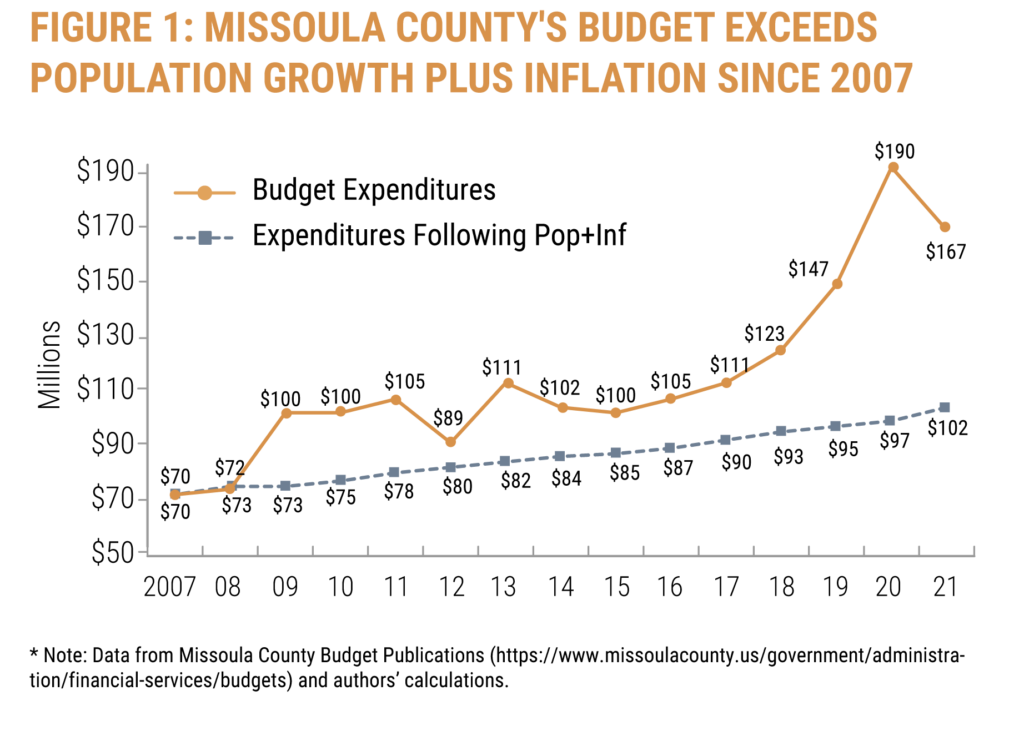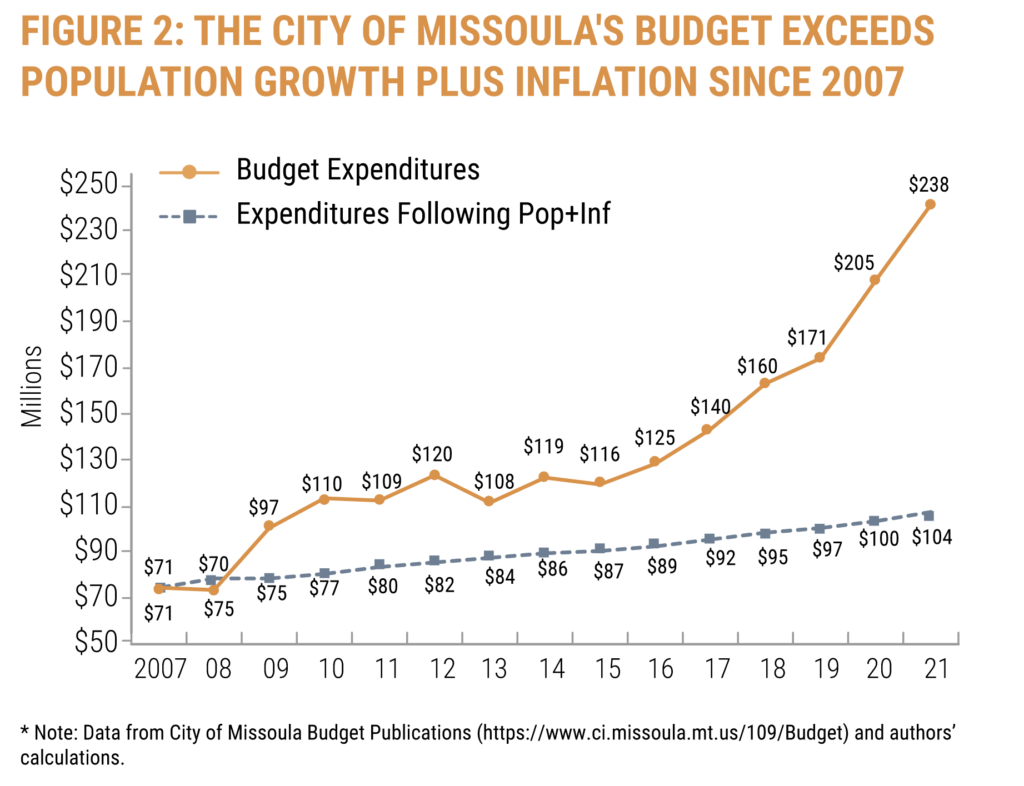New Policy Brief: The Real Missoula Budget
It’s time for local governments to place firm limits on the growth of new spending, keeping budgets within the bounds of economic growth and what taxpayers can reasonably afford.
“Nothing is easier than spending the public money. It does not appear to belong to anybody. The temptation is overwhelming to bestow it on somebody.” – Calvin Coolidge
As local governments around Montana finalize budgets this year we’ve heard the usual blame game about rising property taxes burdening homeowners. Missoula officials have perhaps made the most noise, blaming property tax increases on the state reappraisal process, legislative limits on sales taxes, inflation and the rising costs of maintaining services.
If local governments want someone to blame for high property taxes, it’s time they looked in the mirror at their addiction to reckless spending.
To better understand how local spending drives taxation, Frontier Institute partnered with leading economists at the Texas Public Policy Foundation to put together The Real Missoula Budget, an analysis of Missoula’s budget compared to economic growth over the last 15 years, as measured by population growth plus inflation.
Had Missoula’s governments both passed fiscally responsible budgets for the last 15 years, limiting spending growth to no more than population growth plus inflation, our report shows that combined they could have spared taxpayers nearly $200 Million in 2021:


Missoula’s government is certainly not alone in its spending addiction. As a result of reckless spending, local government property tax collections statewide have been rising faster than almost any other level of government in Montana for decades.
When government spending grows faster than the economy, taxpayers suffer as the burden for funding services outpaces the economic benefits of new people and higher wages. For this reason, Montana legislative leaders successfully aimed to keep the pace of spending growth for the state’s 2023 Biennium Budget below the rate of population growth plus inflation.
It’s time for local governments to place firm limits on the growth of new spending, keeping budgets within the bounds of economic growth and what taxpayers can reasonably afford. If the 2021 Montana legislature can start holding the line on new spending, why can’t local governments?
For Liberty,
Kendall Cotton
…
The Latest
Skyrocketing Prices
- Bozeman’s housing market continues to be red hot with the median price for a single family home rising to $769,000. That’s a 31% increase over last year alone!
“High sales prices and an inadequate supply of available housing have forced many prospective buyers to rent for the foreseeable future,”
Our Take: Now more than ever, policymakers must focus on increasing our housing supply by reducing onerous zoning and building regulations.
Out-of-Control Litigation
- An excellent column says environmental lawsuits are a huge barrier to the proactive forest management needed to mitigate the threat of forest fires. The author notes that Region 1 of the Forest Service, which covers northern Idaho and Montana, has “21 active lawsuits impacting 415 million board feet of timber (or enough to build 21,000 homes).”
“If we are ever to get control of our wildfires and the factors that are causing them, we must also put an end to the “out of control” litigation that threatens virtually every project being planned.”
Our Take: Talk to any Montana logger and they will tell you the same thing: timber lawsuits have simply gotten out of hand and are limiting the ability to properly manage our forests. Policymakers should focus on making frivolous lawsuits less disruptive to important forest management projects.
Economic Freedom
- According to a new report, global economic freedom – meaning countries with low regulations and sound rule of law – hit an all time high in 2019. The United States ranked 6th, behind countries like New Zealand, Switzerland and Singapore. However, economist Vance Ginn expects scores to fall significantly for next report, due to the drastic lockdown measures and mandates governments have enforced during the pandemic:
“We have a sound blueprint of what works well for increased opportunities to let people prosper: economic freedom through free-market capitalism. We need more of it now.”
